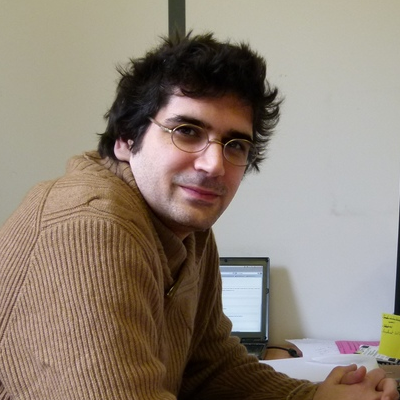
Robert Bossy
Short CV
Robert Bossy is a research engineer at INRA (French National Institute for Agronomy). He works on Natural Language Processing, Text Mining and Artificial Intelligence applied to Biology, Genomics and Food Science.
Robert has a biology background and holds a PhD in Bioinformatics in Université Pierre et Marie Curie (Paris 6). He has worked in Laboratoire d'Informatique et Systématique (Paris 6), Instituto Oswaldo Cruz (Rio de Janeiro) and INRA (Jouy-en-Josas). He is the senior developer at the Bibliome team and supervises the development of the Alvis suite, a set of tools for NLP and Knowledge Acquisition (http://github.com/Bibliome). He has taken part in several large scale projects: Alvis (FP6), Quaero (OSEO), OpenMinTeD (H2020). His favorite scientific events are ACL, LREC and BLAH. Robert has organized several tasks in the BioNLP Shared Task 11/13/16 challenges concerning Biodiversity and Genetics in bacteria and plants.
Currently, his main interest is in the lifecycle of data produced by NLP and TDM and their integration into bioinformatics processes and infrastructures.
About PRESENTATION
Title
What can semantic text-mining do for food quality improvement?
Abstract
The design of text mining-based services adapted to specific needs and usable by non-specialists is efficiently addressed by platforms such as OpenMinTeD. The extraction and formalization of high-quality information possibly requires the use of dozens of specialized tools and resources. OpenMinTeD solution lies in their reuse, adaptation and combination. OpenMinTeD pools these resources and offers all the technology and services needed to design, execute and maintain the processing workflows. The case of food quality presented here is a shining example of how the use of semantic analysis methods applied to a very large collection of documents can contribute to the field of microbiology of food processing and preservation. The formalization of the knowledge extracted from the texts for use in conjunction with other experimental and analytical data is a key point of the approach for researchers and industrial users.
When
DAY 2 - 14:00 Parallel Session 4
TDM: Unlocking a Goldmine of Information
See full programme here.